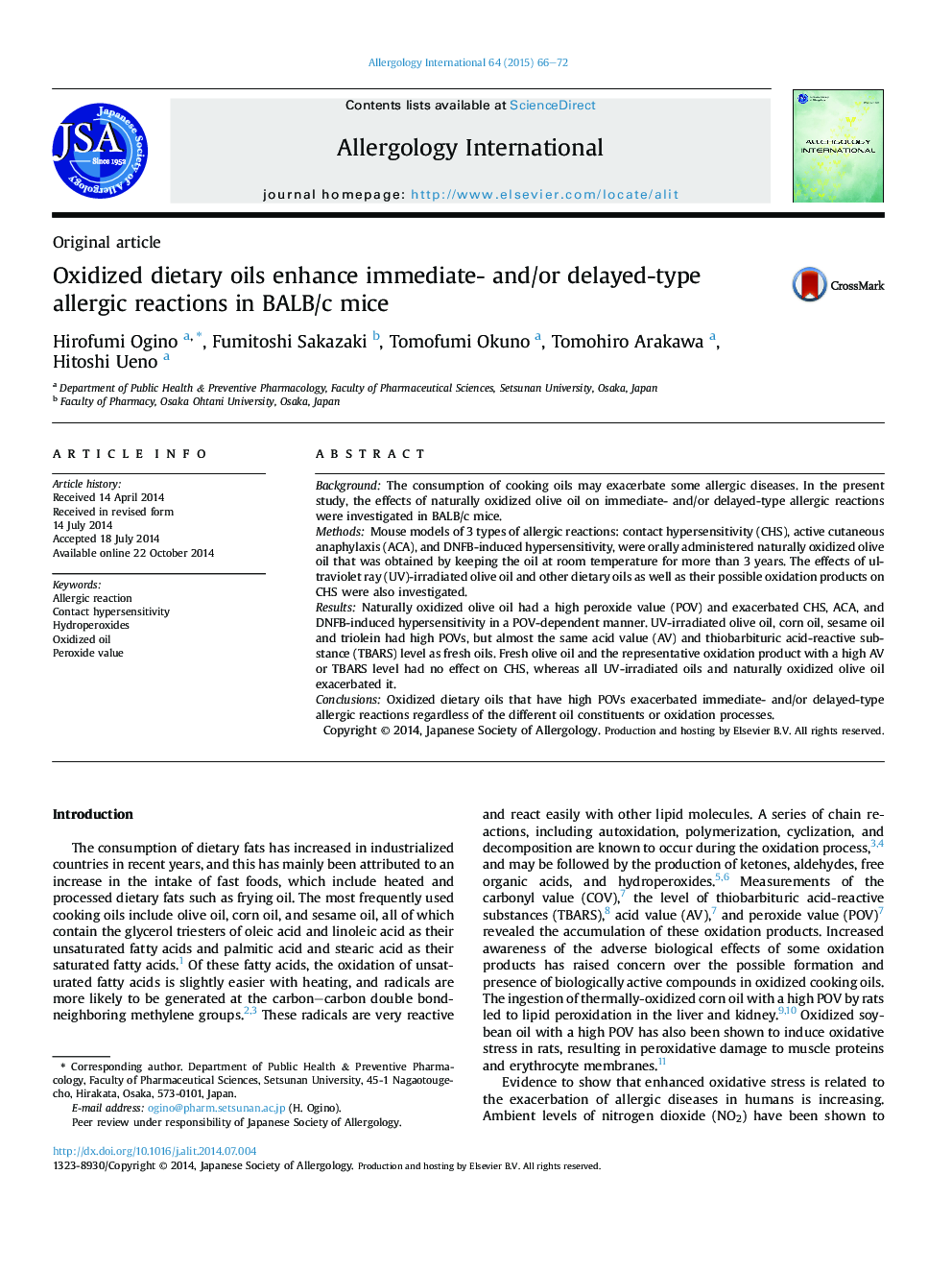| Article ID | Journal | Published Year | Pages | File Type |
|---|---|---|---|---|
| 3340704 | Allergology International | 2015 | 7 Pages |
BackgroundThe consumption of cooking oils may exacerbate some allergic diseases. In the present study, the effects of naturally oxidized olive oil on immediate- and/or delayed-type allergic reactions were investigated in BALB/c mice.MethodsMouse models of 3 types of allergic reactions: contact hypersensitivity (CHS), active cutaneous anaphylaxis (ACA), and DNFB-induced hypersensitivity, were orally administered naturally oxidized olive oil that was obtained by keeping the oil at room temperature for more than 3 years. The effects of ultraviolet ray (UV)-irradiated olive oil and other dietary oils as well as their possible oxidation products on CHS were also investigated.ResultsNaturally oxidized olive oil had a high peroxide value (POV) and exacerbated CHS, ACA, and DNFB-induced hypersensitivity in a POV-dependent manner. UV-irradiated olive oil, corn oil, sesame oil and triolein had high POVs, but almost the same acid value (AV) and thiobarbituric acid-reactive substance (TBARS) level as fresh oils. Fresh olive oil and the representative oxidation product with a high AV or TBARS level had no effect on CHS, whereas all UV-irradiated oils and naturally oxidized olive oil exacerbated it.ConclusionsOxidized dietary oils that have high POVs exacerbated immediate- and/or delayed-type allergic reactions regardless of the different oil constituents or oxidation processes.
